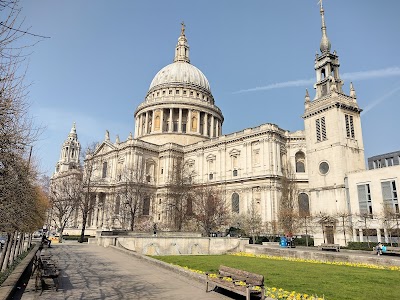Admiralty Islands (Admiralty Islands)
Overview
**Papitalai: A Vibrant Village in Manus Province, Papua New Guinea**
Papitalai is a charming village nestled on the eastern side of Manus Island, part of the Admiralty Islands in Manus Province, Papua New Guinea. This small yet vibrant community is rich in history and culture, beautifully blending tradition with modernity, making it an intriguing destination for travelers.
The origins of Papitalai are steeped in fascinating tales passed down through generations. The village was established by the island's original inhabitants, who were skilled navigators. They journeyed across the open seas in canoes crafted from local woods, guided by the stars and ocean currents. Drawn by the island's lush forests, abundant marine life, and fertile land, these brave explorers settled on Manus Island and laid the foundations for the community we see today.
**Cultural Heritage and Architecture**
The architecture of Papitalai is a testament to its rich cultural heritage and resourcefulness. Traditional homes, known as "kans," were originally constructed on stilts using locally sourced materials. Sago palm leaves were used for thatching roofs, while bamboo and timber provided structural support. This elevated design not only protected the villagers from flooding but also allowed for proper ventilation, keeping the interiors cool in the tropical climate.
As the world opened up to Papitalai, new materials such as corrugated iron and concrete began to supplement traditional building methods. Yet, the community has skillfully maintained a harmonious blend of old and new. Today, the landscape is a mix of modern structures and traditional stilted homes, showcasing the village's evolution while honoring its roots.
**Economy and Traditional Practices**
Agriculture and fishing are the cornerstones of Papitalai's economy. Villagers practice subsistence farming, cultivating crops like taro, yam, and bananas in the fertile soil. Fishing, a skill passed down through generations, yields a generous bounty from the surrounding reefs and deeper waters. The catch, which includes fish, octopus, and crustaceans, not only serves as vital sources of protein but also plays an essential role in local trade and cultural ceremonies.
Traditional practices are integral to Papitalai's social fabric. Ceremonies, dances, and songs mark significant events such as births, marriages, and deaths. Villagers gather in communal spaces to celebrate with music played on handmade drums and flutes, adorned in vibrant, locally crafted costumes that reflect their rich cultural identity.
**Education and Healthcare**
Education is highly valued in Papitalai, exemplified by the establishment of Papitalai Primary School, a milestone in the village's development. The school offers basic education and plays a crucial role in bridging the knowledge of the past with the skills needed for the future. Many students who begin their education here go on to pursue further studies in larger towns or cities across Papua New Guinea.
Healthcare in Papitalai has also seen significant improvements. Traditional medicine, long practiced by village healers using herbs and natural remedies, is now complemented by access to modern healthcare facilities. This hybrid system ensures that the community benefits from a comprehensive approach to health, combining age-old wisdom with contemporary medical practices.
**Facing Modern Challenges**
Like many communities, Papitalai faces modern challenges, including climate change, economic pressures, and the need for sustainable development. Rising sea levels threaten the coastal areas where many homes and agricultural plots are located. However, the resilient spirit of the villagers shines through as they adopt innovative techniques and strategies to mitigate these impacts, such as building seawalls and practicing sustainable fishing methods.
Community organizations play a pivotal role in addressing these challenges. Villagers come together to form cooperatives that focus on environmental conservation, health, and education. These groups collaborate closely with local and international organizations to foster positive change, ensuring that Papitalai not only survives but thrives.
**Conclusion: A Testament to Resilience**
In conclusion, Papitalai stands as a testament to the enduring strength and adaptability of its people. From its humble beginnings to its current blend of tradition and modernity, the village is a beacon of cultural richness and community spirit in Manus Province, Papua New Guinea. The ongoing efforts to preserve its unique way of life while embracing necessary change ensure that Papitalai will continue to be a vibrant and resilient community for generations to come.





